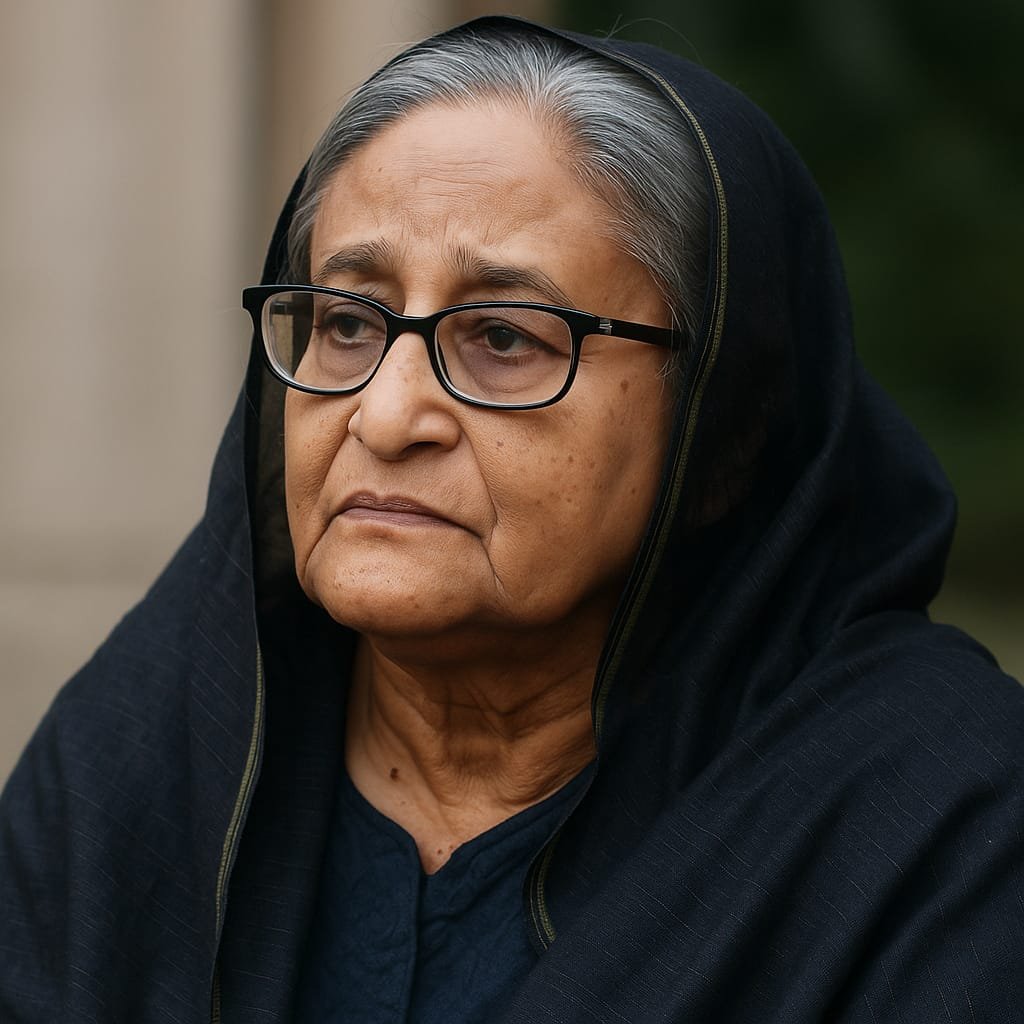
Former Bangladeshi Prime Minister Sheikh Hasina has been sentenced to six months in prison for contempt of court, a verdict that has drawn global attention and stirred strong reactions across South Asia. This comes nearly a year after she was ousted from power during a massive student-led uprising in August 2024. The verdict was delivered by the International Crimes Tribunal (ICT) of Bangladesh, which has now shifted focus toward more serious charges related to alleged crimes committed during her tenure. Hasina, who is currently in India, was tried and sentenced in absentia.
The ICT panel, headed by Justice Golam Mortuza Mozumder, also sentenced two former leaders of the student wing of the Awami League, Bangladesh Chhatra League, to six months in prison in the same case. The judgment marks the first time that Sheikh Hasina, a political figure who dominated Bangladeshi politics for nearly two decades, has faced any criminal sentence since her dramatic fall from power.
This ruling further highlights the deepening political crisis in Bangladesh. In August 2024, Hasina's government was overthrown following the violent death of a university student, Abu Sayeed, during a protest at Rangpur University. The incident ignited a nationwide wave of anger and demonstrations, primarily led by students under a platform called Students Against Discrimination (SAD). The movement accused the government of authoritarianism, corruption, and nepotism. Sayeed’s death became the turning point in the nearly 16-year-long rule of Hasina.
Soon after the uprising, Hasina fled to India aboard a military aircraft. The interim government, backed by the student movement, declared her a fugitive and began a series of legal proceedings. The contempt case arose when Hasina allegedly made remarks against the tribunal while it was hearing testimonies related to state-backed violence during her administration. According to government prosecutors, she also leaked sensitive documents and influenced witnesses through intermediaries.
Since the uprising, the country has been in a state of political flux. The current interim government, composed of civil society members and student leaders, has struggled to maintain order while trying to rewrite Bangladesh's political narrative. The establishment of a “people’s tribunal” and the launch of several investigations into former government officials have deepened tensions. Allegations of military involvement in the suppression of dissent are also under scrutiny.
Meanwhile, international organizations have expressed concerns about the stability of the country. The European Union and the United Nations have called for transparent legal proceedings and fair treatment of all political figures, including Hasina. India’s role in sheltering the ousted leader has attracted mixed reactions. While some view it as a humanitarian gesture, others believe it could complicate bilateral relations.
Adding to the political turmoil, the Nobel laureate and social entrepreneur Muhammad Yunus returned to Bangladesh to mediate between warring factions. Yunus, 85, has remained a vocal critic of political excesses and is seen as a unifying figure. However, his return also reignited old legal disputes. He was earlier sentenced for financial irregularities related to his organization, Grameen Bank. While those cases did not result in jail time, they remain a tool for his political opponents.
Bangladesh's current uncertainty shows how quickly political fortunes can shift in South Asia. Sheikh Hasina was once seen as a symbol of development and stability. Her government brought infrastructure progress and a booming garment industry. But over time, critics argued that she silenced opposition voices, suppressed media freedom, and relied too heavily on security forces.
Now, as she faces further trials and possible jail time, the future of Bangladeshi politics remains wide open. Whether the country can transition peacefully to a stable democracy depends on how the interim government handles justice, public trust, and international diplomacy. For the people of Bangladesh, the biggest hope is for a future where justice is not a political tool and leaders are held accountable regardless of their past stature.





















